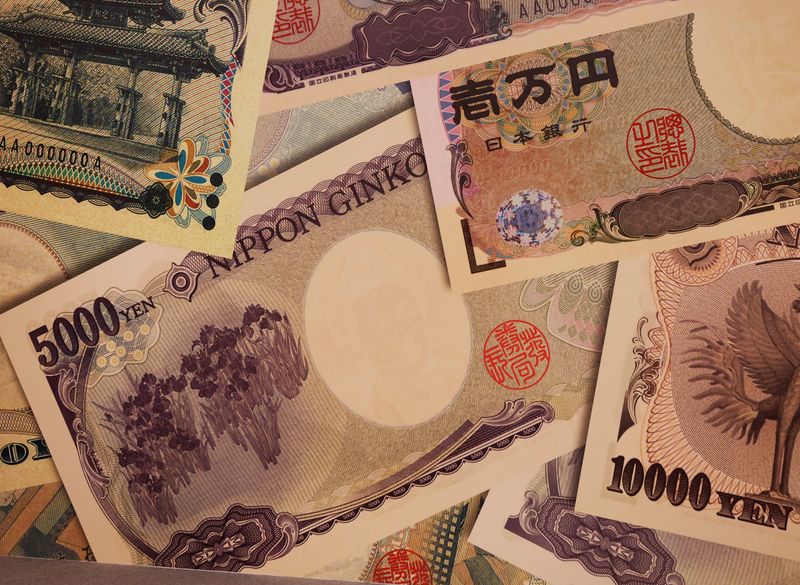
By Makiko Yamazaki and Takaya Yamaguchi
TOKYO (Reuters) -Japan’s top currency diplomat on Monday issued a warning against speculative moves on the foreign exchange market as the yen fell below 149 per dollar.
“We will monitor currency market moves including speculative trading with a sense of urgency,” Atsushi Mimura told reporters, reviving a verbal warning tactic that his predecessor, Masato Kanda, frequently used.
Mimura declined to comment on the specifics of the current market situation.
Separately, Katsunobu Kato, the nation’s newly appointed finance minister, said the government would monitor how rapid currency moves could potentially impact the economy and would take action if necessary.
“The government will consider what action should be taken while monitoring the impacts,” Kato said in an interview with a small group of reporters on Monday.
The yen depreciated to 149.10 versus the dollar in early trading on Monday, the weakest since Aug. 16, after a surprisingly strong U.S. jobs report for September led traders to cut bets that the Federal Reserve will make further large interest rate cuts.
Japan last conducted yen-buying intervention in late July to support its currency after it tumbled to a 38-year low below 161 per dollar.
The yen has also been under pressure since new Japanese premier Shigeru Ishiba stunned markets when he said the economy was not ready for further rate hikes, an apparent about-face from his previous support for the Bank of Japan’s unwinding decades of loose monetary policy.
In Monday’s interview, Kato said the government would leave specific policy steps to the Bank of Japan (BOJ), when asked whether the policy rate should be maintained at 0.25%.

“The government hopes that the BOJ will communicate with markets thoroughly and take appropriate policy to achieve its 2% inflation target in a stable and sustainable manner,” he said.
The BOJ in March delivered its first rate hike in 17 years, arguing the pace of price and wage increases showed Japan was finally shaking its entrenched deflationary mindset. The central bank unexpectedly increased rates again in July, triggering a shakeout in domestic markets.
This post is originally published on INVESTING.


